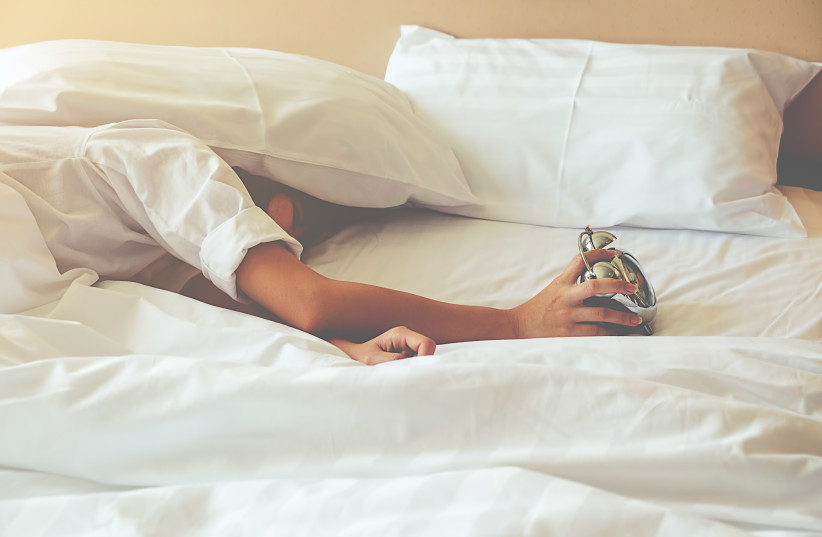Sleep is obviously a critical part of the overall health of both adults and children, but it can also be an important factor, especially in the way younger people behave. According to a new study from the University of Georgia, getting enough sleep can help children combat the effects of stressful environments and reduce their impulsivity.
“Stressful environments are shown to make adolescents seek immediate rewards rather than delayed rewards, but there are also teens who are in stressful environments but are not impulsive,” said doctoral student and lead author Linhao Zhang. “We looked at what explains that link and what makes some people differ from others. One mechanism we found is sleep.”
Israeli children and teens are well known for not getting enough sleep. According to the Health Ministry in Jerusalem, children aged six to 13 years should get nine to 11 hours and teens aged 14 to 17 eight to 10 hours sleep. But most get much less because of “addiction” to screens – smartphones, tablets, and TV.
Zhang and colleagues have just published their study in the journal Sleep Health of the US National Sleep Foundation, under the title “Sleep mediates the effect of stressful environments on youth development of impulsivity: The moderating role of within default mode network resting-state functional connectivity.”
How does sleep make you less impulsive?
Researchers analyzed data from the Adolescent Brain Cognitive Development Study – a multi-year brain development study funded by the US National Institutes of Health. Using information from 11,858 children from nine and 10 years old, they found that lack of sleep and long sleep latency – the amount of time it takes to get to sleep –had a significant connection to impulsive behaviors of all kinds.

Sleep problems and impulsive behaviors were checked at multiple time points over the course of two years. When children got less than the recommended nine hours of sleep or took more than 30 minutes to get to sleep, there was a strong link to impulsive behaviors later. Some of these behaviors included acting without a plan, seeking thrills or sensations, and lacking perseverance. Sleep was a mediator, and when sleep problems were absent during the study, impulsivity was also less likely to be observed in the future.
Neurological hyperconnectivity, in which the teens’ brains remained very active even when they were not actively engaged in tasks, also played a role, Zhang said. This study looked at the default mode network – a brain network related to goal-directed behaviors. When this network is hyperactive during a resting state, it could worsen the link between stressful environments, sleep, and impulsivity. This connection could be linked to attention-deficit hyperactivity disorder (ADHD), which Zhang hopes to study in the future.
“We can look at the default mode network and emotional regulation regions,” Zhang continued. “It’s also possible that this hyperactivity and ADHD are highly correlated, so in a future study, we could test that in a more clinical setting. That could have great implications on intervention or counseling programs.”
These findings not only highlight sleep’s role in cognitive and behavioral development, but could also inform low-cost interventions to aid in the psychological development of children facing at-home stressors, Zhang said. “If you want to develop interventions for people in stressful environments, it’s very costly, and sometimes it needs generational work to change,” Zhang said. “Sleep is a modifiable behavior, however, and these changes can be cost-efficient.”
The team found that too little sleep can be an issue even when the young person is not in a stressful environment. For example, teenagers often have a circadian rhythm that is geared toward staying up later and sleeping in, but early school start times and late nights completing homework can throw off that rhythm.
“A lot of adolescents don’t have enough time to sleep, and they are sleep deprived,” Zhang said. “This study shows why it is important to promote longer sleep duration by delaying school start times or establishing routines so that adolescents know, ‘OK, after this event, I’m going to bed.’ ”
Establishing these routines, no matter what the environment, can create healthier patterns and reduce the time it takes to get to sleep. It’s also vital to act early when developing sleep habits, Zhang said. “For people who may be in disadvantaged environments, if we can provide some strategies that help sleep, it can have a positive impact, especially for adolescents that are at such a critical developmental stage for their brain development.”
